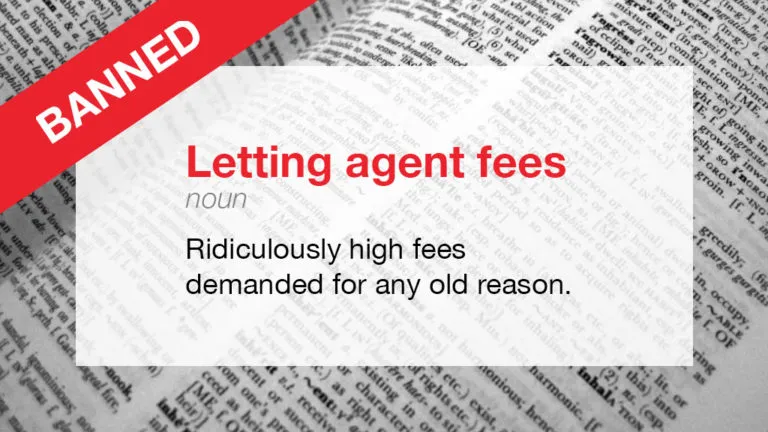The letting fees ban is finally happening
Published: by Kojo Apeagyei

Mark 1 June 2019 in your calendars, folks.
Almost three years after the ban on letting fees was first announced, in Autumn 2016, the government has finally approved the Tenant Fees bill – which would ban letting agents and landlords charging ridiculous letting fees.
On Wednesday 23 January 2019, parliament approved the bill, which bans all upfront fees to tenants – things like reference fees, credit checks, administration fees and contract renewal fees.
Government analysis suggests private renters could save £300 on average every time they move house.
Default fees
The bill underwent a few amendments over the year to reach this point – notably the closing of a potential loophole in the form of ‘default fees’. Our supporters campaigned to ensure that tenants would not still be charged extortionate ‘default fees’ after the ban on letting fees.
In the letting agents’ own evidence to the committee, they said default fees would be ‘increased severely’ to make up for the loss of money from other fees that are now banned.
Additionally, we heard of hundreds of cases of random fees being charged– such as £500 for reference and credit checks, £45 to replace a dustpan and brush, and £200 to check out of a property.
Yes, these are actual fees charged to some tenants.
A whopping 4,283 Shelter supporters emailed their MP about default fees– with 335 tweeting their MP, and 68 sending us examples of what they had been charged. This helped convince the government to ensure the bill prevented further exploitation.
So, what does the bill say?
The bill only allows landlords and letting agents to charge default fees for two things:
- Replacing a lost key – with the cost of replacing the key limited to the landlord’s or letting agent’s reasonable costs, which must be evidenced in writing (i.e. they can only charge you for the cost of a new key)
- Late rent – only applied after the rent is 14 days late, and with interest on any late rent limited to 3% above the Bank of England base rate
While we don’t want to see landlords and letting agents incur unnecessary costs, rightfully this bill only allows them to recoup the cost for genuine losses, whilst also protecting tenants from ridiculous fees.
It’s important to note that landlords can still recover money for property damages as they do now e.g. deducting money from the deposit at the end of the tenancy.
Security deposits
The bill also caps the amount which can be requested for security deposits, reducing them from six weeks’ rent to five weeks.
The cap will help address some of the challenges of affordability; reducing the barrier for tenants to rent a property. Security deposits are one of the biggest costs families must budget for when finding a new property – and our analysis shows that reducing the cap from six weeks to five will save renters over £150 in the majority of local authority areas across the country.
The only exception to this will be for particularly high-end properties, where the annual rent is over £50,000 per year, where the cap will remain at six weeks’ rent.
Holding deposits
The bill introduces additional protections around holding deposits when a tenancy isn’t going ahead. Firstly, the holding deposit is capped at no more than one week’s rent. The bill also stipulates that only one holding deposit can be taken per property.
Landlords and letting agents are also now required to set out in writing, why they are keeping a holding deposit within seven days of deciding not to go ahead with the tenancy, or they will have to refund the holding deposit.
Phew! So, a few changes to note, but all necessary changes for improving our private rented sector.
What if a letting agent or landlord is still charging me fees?
If a letting agent tries to charge you a fee after 1 June 2019, which isn’t the cost of replacing a key, or interest for late rent, they will be breaking the law. You can report this to Trading Standards.
Please be advised that they can still charge you fees up until 31 May 2019. If you sign a tenancy before 1 June which includes any fees, you will still be liable to pay them. However, tenants seeking or renewing new contracts in the first five months of this year should shop around and challenge contracts which continue to charge these unfair fees.
Overall, we are massively pleased to hear that the ban is passing.
The government has shown its commitment to doing what’s right. And thanks to the pressure from our supporters, along with the hard work of Labour and Lib Dem peers, we have ensured this bill finally passes into law on 1 June 2019.
We’re eagerly looking forward to that day!